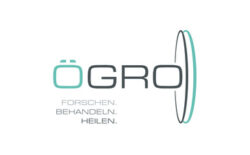- MS Teams
- 14:00 – 20:15
- 06.-06.Oct 2022
-
Event hinzufügen
2nd International Radiation Oncology Online-Seminar: Novel Unconventional Radiotherapy Techniques: Current Status and Future Perspectives
Outline
We all have witnessed remarkable technological, physical and biological developments in the field of radiation oncology resulting in improved treatment effectiveness and reduced complication rates thanks to the high-precision in tumor identification, localization and dose delivery. However, these improvements in local control and survival do not apply to all clinical situations. A significant percent of oncologic patients still remains hopeless, like those affected by very large, unresectable bulky tumors that are unsuitable for the conventional radio-chemotherapy. These patients are predestined to palliative or best supportive care. From that the need to improve treatment outcomes for this patient population arises.
In order to present and to discuss the currently available data in regard to novel, unconventional radiotherapy techniques, MedAustron is organizing an online seminar that will focus on emerging spatially fractionated radiotherapy approaches with potential to increase the radiation therapeutic ratio. The goal is to bring together leaders in the field to give talks that are experience-focused to foster learning, understanding, inspiration and wonder, provoking conversations that matter.
Scientific Program
| 02.00 | Welcome Address Slavisa Tubin, Chair of the Organizing Committee; Ben J. Slotman, ESTRO President; Eugen B. Hug, Medical Director MedAustron |
| 02.15 – 04.20 | Session 1 |
| Spatially fractionated radiotherapy: GRID, LATTICE, PATHY, MINIBEAM, MICROBEAM – past, present & future |
|
| 02.15 – 02.35 | GRID Radiotherapy Majid M. Mohiuddin, Radiation Oncology Consultants and Northwestern Proton Center, Warrenville, Illinois, USA |
| 02.40 – 03.00 | LATTICE Radiotherapy Xiaodong Wu, Innovative Cancer Institute based in Miami, Florida, USA |
| 03.05 – 03.25 | SBRT-PATHY, Particle-PATHY Slavisa Tubin, MedAustron Center for Particle Therapy and Research, Wr. Neustadt, Austria |
| 03.30 – 03.50 | Minibeam and Microbeam radiotherapy Yolanda Prezado, Centre National de la Recherche Scientifique (CNRS), Universités Paris, France |
| 03.55 – 04.15 | Distal non-targeted radiation effects Pedro Lara, Department of Oncology San Roque University Hospital, Las Palmas, Spain |
| 04.20 | Break |
| 04.40 – 08.15 | Session 2 |
| FLASH, low doses, single doses, particles | |
| 04.40 – 05.00 | Importance of radiation dose and fraction: single doses Carlo Greco, Radiation Oncology, Champalimaud Clinical Centre, Lisbon, Portugal |
| 05.05 – 05.25 | Importance of radiation dose and fraction: low doses Mariangela Massaccesi, Radiation Oncology, Policlinico A. Gemelli, Rome, Italy |
| 05.30 – 05.50 | Importance of dose-rate: FLASH Marie-Catherine Vozenin, RB, Hospital CHUV and University of Lausanne, Switzerland |
| 05.55 – 06.15 | Particle therapy: LET-dose painting Niels Bassler, Department of Clinical Medicine – DCPT – Danish Center for Particle Therapy, Aarhus, Denmark |
| 06.20 – 06.40 | An update on the radiation-induced bystander effect: lost in translation? Kevin Prise, Queen’s University Belfast, Ireland |
| 06.45 – 07.05 | Reprogramming of tumor microenvironment by low dose radiotherapy Chandan Guha, Montefiore Medical Center, New York, USA |
| 07.10 – 07.30 | Personalized ultrafractionated stereotactic adaptive radiotherapy (PULSAR) Robert Timmermann, Department of Radiation Oncology, UT Southwestern Medical Center, Dallas, Texas, USA |
| 07.35 – 07.55 | Particle therapy, immunotherapy and targeted therapy: potentiation of immune anti-tumor response Marco Durante, Abteilung Biophysik, GSI Helmholtzzentrum für Schwerionenforschung, Darmstadt, Germany |
| 08.00 – 08.15 | Concluding Remarks |
| Slavisa Tubin, Chair of the Organizing Committee |
Seminar registration
Please register via this form:
Oops! Wir konnten dein Formular nicht lokalisieren.
In Collaboration with


